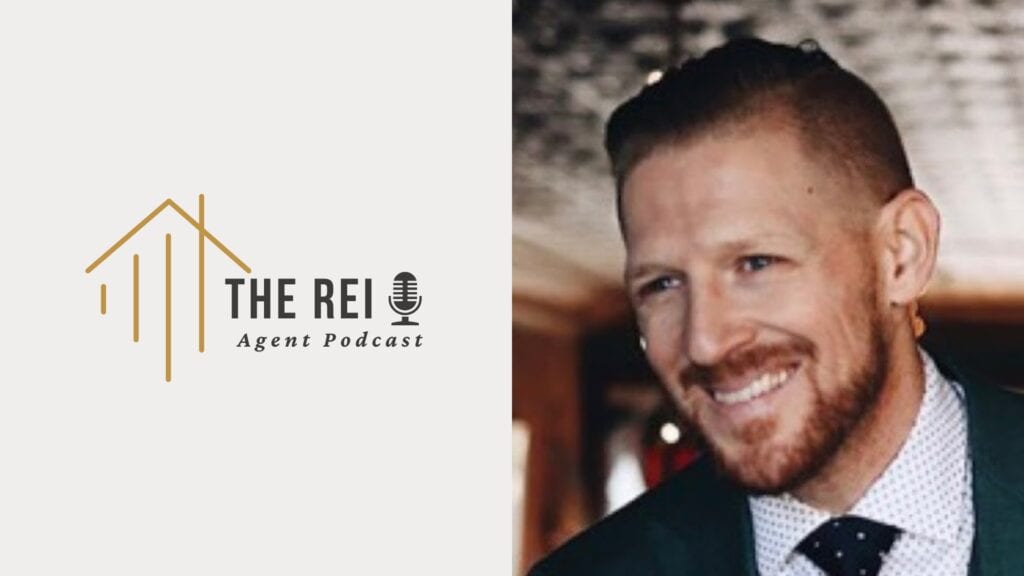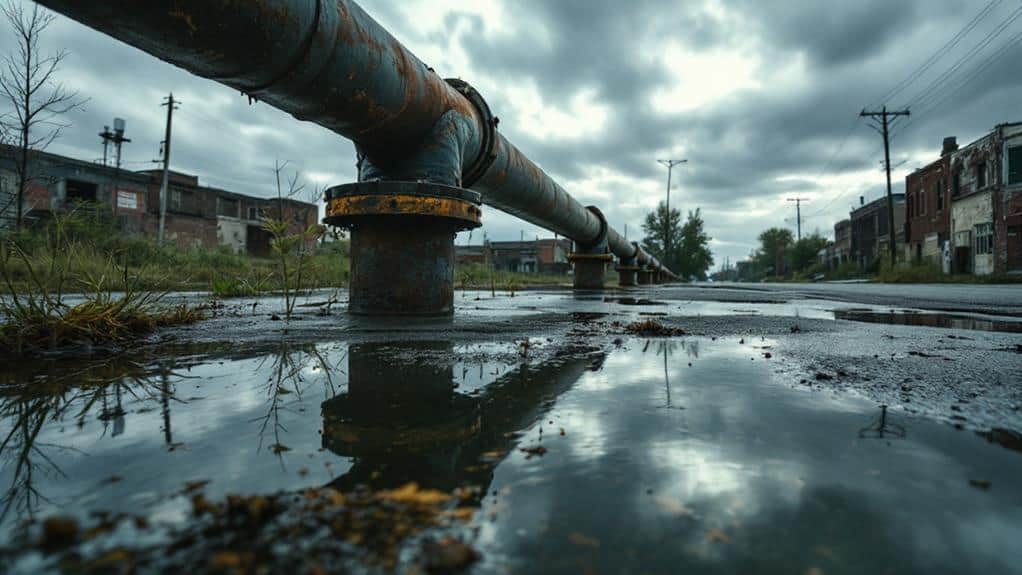Key Takeaways
- Proactive Steps for Investors: Conducting risk assessments and investing in filtration systems can safeguard properties and tenants amidst Newark’s water contamination concerns.
- Community Engagement: Working closely with local authorities and advocating for policy improvements ensures investor and community interests align for sustainable solutions.
- Long-term Strategies: Investing in Newark’s water infrastructure not only addresses current issues but fortifies properties against future risks, enhancing value and community trust.
Introduction: Navigating Newark’s Water Crisis as a Property Investor
As an investor in Newark’s property market, you’re likely aware of the city’s water crisis and its potential impact on your assets.
Lead contamination isn’t just a health concern; it can also diminish property values and deter prospective tenants.
So, how can you safeguard your investments amidst these challenges? By conducting thorough risk assessments and staying informed about local developments, you can take proactive steps.
But, there’s more than just installing filtration systems or engaging with authorities.
What strategies will guarantee your property’s resilience and maintain its appeal in this uncertain environment?
Understanding Newark’s Water Crisis
Newark’s water crisis has become a pressing issue that demands attention and action.
As you investigate understanding this complex situation, it’s important to grasp the factors affecting water quality and the role of municipal policies.
Newark’s aging infrastructure has led to significant concerns about lead contamination in the drinking water.
This issue, stemming from corroded pipes, highlights the urgent need for thorough solutions and improvements.
You’re not alone in seeking clarity about how municipal policies are addressing these concerns.
Recent measures include distributing water filters and replacing lead service lines, showcasing a commitment to enhancing water quality.
However, these efforts require your awareness and involvement to guarantee they’re effective and sustainable.
Engaging with local government initiatives and staying informed about policy changes can empower you to be part of the solution. In this journey, remember that understanding and action go hand in hand.
When you advocate for improved water quality, you contribute to a healthier community.
Impact on Property Values
Imagine the potential for renewal and growth even as Newark’s property values feel the strain of water contamination.
RELATED CONTENT
You have the power to envision a future where neighborhoods regain their charm and desirability, sparking a renewed sense of community.
As market demand fluctuates, believe in the strength of collective efforts to turn challenges into opportunities, ultimately uplifting the spirit and value of the city.
Contamination Effect on Prices
Contaminated-water issues often lead to a noticeable dip in property values.
If you’re an investor in Newark, you’re likely feeling the pressure from price sensitivity that arises when potential buyers view contaminated water as a major red flag.
This isn’t just about numbers on a spreadsheet—it’s about how market perception can turn on a dime, transforming a thriving area into one with plummeting appeal.
Imagine standing in front of a house you once saw as a beacon of opportunity. Now, that same house represents uncertainty. The community’s trust wavers, and suddenly, the investment you made feels shaky.
Buyers and renters alike become wary, wondering about their health and safety, and these worries directly affect what they’re willing to pay.
Yet, it’s important not to lose hope. Understanding the situation helps you navigate the choppy waters of property valuation.
With the right strategies, you can mitigate these risks and even find opportunities amidst the chaos.
Addressing contamination head-on, investing in solutions, and communicating transparently with potential buyers can shift perceptions.
Stay informed, proactive, and determined. You can transform challenges into stepping stones, restoring value and faith in your investments.
Neighborhood Desirability Decline
Numerous factors contribute to the decline in neighborhood desirability, impacting property values considerably.
When you think about how community perceptions shift, it’s easy to see why these changes matter.
Residents begin to worry about potential health concerns, leading to a decline in confidence and a reluctance to invest in the area.
It’s important to understand that these perceptions aren’t just fleeting thoughts; they’ve real, tangible effects on property values.
Consider these three aspects that can heavily influence neighborhood desirability:
- Community Perceptions: When residents believe their neighborhood is at risk, they’re less likely to invest in improvements, leading to a cycle of decline.
- Health Concerns: Potential water contamination raises alarms. Families prioritize safety, and if they sense a risk, they look elsewhere, affecting demand and prices.
- Aesthetic Decline: As perceptions wane, so does the upkeep of properties. Overgrown lawns, peeling paint, and neglected repairs become common sights.
Recognizing these elements empowers you to take action.
You can become a catalyst for change by engaging in community efforts, advocating for solutions, and helping to restore faith in your neighborhood.
Your proactive approach can inspire others and gradually shift the tide toward a brighter future.
Market Demand Fluctuations
While community perceptions and health concerns weigh heavily on neighborhood desirability, market demand fluctuations play an equally significant role in shaping property values.
You might notice how swiftly market trends change, impacting investment opportunities in Newark.
The water woes may raise concerns, but they also highlight the potential for astute investors like you to capitalize on fluctuating demands.
Imagine the city’s neighborhoods as living entities, constantly adapting to the ebb and flow of market interest. When demand increases, so does the value of properties, creating a fertile ground for growth and opportunity.
As an investor, you have the power to ride these waves, turning challenges into advantages.
Staying informed and adaptable is your best strategy. By keeping an eye on emerging market trends, you can anticipate shifts in demand and navigate the property landscape with confidence.
This proactive approach not only safeguards your investments but can also enhance their value over time.
In a city like Newark, where water issues loom large, the ability to perceive and react to market demands makes all the difference.
You’re not just investing in properties; you’re investing in potential, resilience, and a brighter future.
Assessing Contamination Risks
Understanding the intricacies of contamination risks in Newark’s water supply involves examining multiple factors that could affect water quality.
As an investor, it’s essential to take proactive steps, ensuring you’re not only safeguarding your property but also contributing to a healthier community.
Start by focusing on an all-encompassing risk assessment.
This process helps identify potential hazards and evaluates the likelihood of water contamination impacting your investments.
- Soil Testing: Conduct thorough soil testing on your properties. This will reveal if contaminants are present, helping you devise a strategy to mitigate risks.
- Infrastructure Evaluation: Examine the existing water infrastructure. Aging pipes or outdated systems can greatly increase the risk of contamination, so be vigilant about necessary upgrades or replacements.
- Community Engagement: Participate in local initiatives and discussions about Newark’s water quality. Being informed and involved can help you anticipate and address potential issues before they escalate.
Legal Implications for Investors
Maneuvering the legal landscape as an investor in Newark’s water supply requires a keen awareness of potential liabilities and regulatory obligations.
You’re managing a complex environment where understanding regulatory compliance isn’t just beneficial—it’s essential.
Regulatory bodies set standards that you must adhere to, ensuring that your investments aren’t only profitable but also safe and sustainable.
Your role involves staying informed about these regulations and implementing them diligently to avoid unnecessary pitfalls.
Liability exposure is another critical consideration. Imagine the costs and reputational damage if water contamination affects your property.
Safeguarding against such scenarios requires proactive measures, including regular inspections and swift responses to potential issues.
By doing so, you reduce the risk of legal claims and demonstrate a commitment to responsible investment. Reflect on the impact of your decisions.
Every choice you make affects not only your financial health but also the well-being of the community.
Implementing Water Safety Measures
A crucial step in guaranteeing the safety of Newark’s water supply is the implementation of robust water safety measures.
You can make a significant difference by prioritizing these actions to protect your property and the community.
First, consider investing in advanced water filtration systems. These systems are designed to remove contaminants effectively and guarantee clean water flows consistently into your home.
They act as a barrier against potential risks, providing peace of mind for you and your family.
Second, enhance community awareness about water safety. Engage with your neighbors, share information about best practices, and encourage them to adopt similar measures.
Community efforts create a ripple effect, fostering a culture of vigilance and care.
Engaging With Local Authorities
Collaboration is key when it comes to engaging with local authorities to address Newark’s water issues. By embracing community partnerships, you can create a united front that not only respects but enhances the regulatory compliance landscape.
This collaboration involves open, honest dialogue with officials, ensuring your property investments are protected from contamination risks.
It’s about seeing local authorities not as adversaries, but allies in your mission to maintain safe and healthy living environments.
Engaging with local authorities starts with understanding the rules and regulations they set forth.
These guidelines aren’t just bureaucratic hurdles; they’re essential for safeguarding the community.
Enhancing Tenant Communication
Effective communication with tenants is essential in addressing Newark’s water issues. You can empower your tenants by adopting clear communication strategies, ensuring they’re informed and engaged.
This isn’t just about passing on information; it’s about creating a dialogue that fosters understanding and trust.
First, focus on tenant education. Equip them with knowledge about water safety and steps they can take to protect themselves.
This helps them feel more secure and proactive in their living environment.
Next, utilize multiple communication channels. Not everyone prefers the same method, so diversify your approach:
- Emails: Send regular updates and detailed information straight to their inbox.
- Meetings: Host regular in-person or virtual meetings to address concerns and provide updates.
- Bulletin Boards: Post notices in communal areas for easy access to important information.
Long-term Investment Strategies
Investing in Newark’s water infrastructure isn’t just a necessity; it’s a smart long-term strategy for improving public health and economic stability.
As an investor, you can harness the power of sustainable investments to secure and enhance your property’s value.
By focusing on water infrastructure, you’re not only addressing current contamination risks but also fortifying your assets against future uncertainties.
This approach to risk management isn’t just about safeguarding your investment; it’s about being part of a transformative movement that prioritizes community well-being and environmental sustainability.
Imagine a future where Newark’s water infrastructure is robust, reliable, and resilient. By taking action now, you contribute to this vision, ensuring that your investment stands the test of time.
Sustainable investments in water treatment facilities and lead pipe replacements aren’t just financially sound; they’re ethically rewarding. They signal your commitment to the community’s health and prosperity, which can attract tenants and buyers who value responsible ownership.
Your investment journey in Newark isn’t just about profit; it’s about making a difference.
By embracing these long-term strategies, you play a vital role in shaping a better, healthier future for everyone.
Conclusion
A Beacon of Hope in Newark’s Water Crisis
Imagine your property as a lighthouse, guiding tenants through Newark’s water crisis with unwavering strength.
By investing in advanced filtration systems, you’re not just protecting property values; you’re safeguarding health and hope.
Picture the peace of mind that comes from open conversations with tenants and collaboration with local authorities.
These steps transform challenges into opportunities.
Now is the time to act.
Ensure your investment stands tall, a beacon of trust and safety.
Shine brightly through any storm that may arise.
Make your property the guiding light in Newark’s journey to a healthier future.
Take action today, and let your commitment inspire others.



























